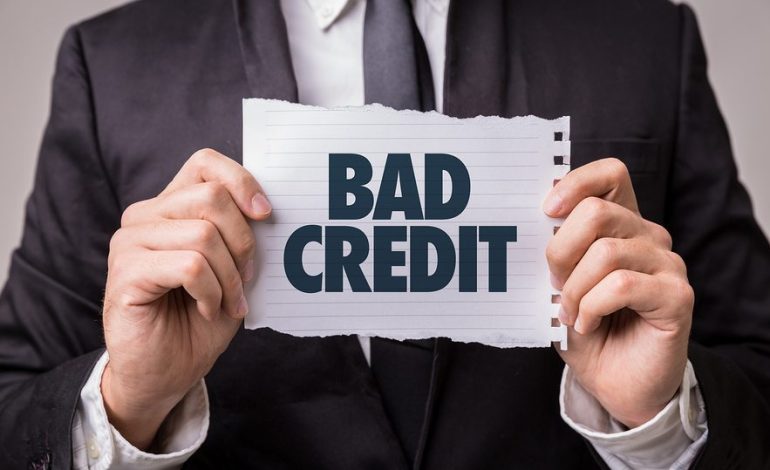It is feasible to obtain a business loan while unemployed, but keep in mind the standards that must be met in order for lenders to trust your ability to make on-time payments. Because everyone’s circumstance is unique, obtaining a business loan may be easier for some and more difficult for others.
Although not impossible, obtaining a business loan while unemployed may be tough. If you’re unemployed, you can still acquire a business loan, but you’ll need to have solid credit and another source of income. By demonstrating this, lenders will have confidence in your ability to make regular, on-time payments.
Lenders will consider giving you a loan if you can demonstrate that you can make the payments, whether you are unemployed unexpectedly or by choice. Your ability to obtain a company loan is determined by your circumstances. For example, if you had a business before being unemployed, you may be eligible for a business loan.
However, if you have just started your new business, it may be tough to obtain a loan because lenders will be hesitant to supply you with funding unless you have a steady source of income and credit.
The following is a list of factors that lenders consider when considering eligibility for a business loan.
Business Credit Profile
Dun & Bradstreet, Experian, and Equifax offer business credit scores that fall between 0 and 100. It can take many months to three years to build a business credit score, meaning it’s challenging for startups to obtain finance solely based on their credit scores.
Since the business owner personally guarantees many business loans, lenders frequently look at an applicant’s individual credit rather than their business credit profile. If you have an excellent personal credit record and are willing to guarantee repayment of your company loan personally, this may work in your favor. However, if you have poor credit and just lost your consistent income, the criteria may be difficult to meet.
Annual Business Income Record
Business lenders examine an applicant’s annual income streams during the application and underwriting process to determine their capacity to make consistent, on-time payments. Since it’s difficult to prove annual revenue without transactions or current clients, new firms generally have a more challenging time applying for a loan.
Fortunately, a great business plan illustrating the company’s financial health and potential for future growth can help you overcome this obstacle. Young firms may prefer secured loans, such as equipment finance, since the lender bears lower risk, making the loans easier to obtain.
Business Timeframe
Lenders consider how long a company has been in business before approving credit since it displays success to lenders and better prospects of completing scheduled payments. Businesses in operation for at least one to two years have a higher approval rate than newer businesses. Many startup loans demand companies be in business for at least six months.
Read Also: How Can I Get a Small Business Loan With Bad Credit?
In an organization, it’s hard to lie about time. Hence, a way around this is to buy an existing business rather than starting from scratch, allowing you to demonstrate annual income and your potential to perform loan payments. However, this isn’t an option for everyone, and it may not be a viable alternative if you’re purchasing a struggling or failing business.
Using Collateral for Secured Loans
Business collateral — such as costly equipment or real estate — supports several business loans. If the borrower defaults on a secured loan, the lender can confiscate the collateral. This loan type decreases the lender’s risk level and makes it easier for the applicant to qualify, particularly young business owners with little to no revenue or credit history.
You might be able to receive a personal loan instead of a business loan if you don’t have any business assets but have access to other collateral, such as your home. Similarly, suppose your spouse still earns a typical salary and has a debt-to-income ratio indicating the potential to make extra loan payments. In that case, you may be eligible for a personal loan.
The documentation that lenders require from you differ depending on the lender. Nonetheless, most lenders will want copies of bank statements and related financial papers to demonstrate the company’s financial stability and ability to make loan payments.
If you’ve never applied for a business loan before and want to know what documents you’ll need, here’s a list of what lenders may require:
Tax Returns
Other sources of capital — such as financial inflows from shareholders and other lenders — are included in a company’s tax filings. Lenders typically want at least three years of tax returns for the business loan application process, and alternate lenders may also request tax returns before issuing a company loan. A tax specialist may be able to help you establish income predictions if you’ve just launched your organization.
Financial Statements
Additional financial records might give lenders a clearer view of a business’s risk. Profit and loss statements, a balance sheet, and cash flow statements are all examples of financial records. Lenders may also require financial statements to back up your estimates.
Licenses, Permits, and Business Registrations
Lenders frequently demand applicants to submit operating documentation, such as articles of formation for a limited liability company. Similarly, if your firm requires any licenses, present them to the lender so they can verify your identification and the legitimacy of your company.
Bank Statements
Bank statements can show a company’s previous cash flow, cash on hand, and assist lenders in projecting future profits. Typically, lenders like to see three months to three years of bank statements, but this may not be achievable if your company is just starting.
Business Plan
A business plan — particularly for fledgling enterprises — can assist lenders in a greater understanding of an applicant’s economic position. If you’re applying for a loan without any proof of income, ensure you have a complete business plan containing a definition of the company’s products and services, competitor analysis, target market analysis, and marketing strategy for achieving sales targets.
Other Documents
Lenders want to know the company’s existing debt obligations when considering loan applications to help them lower the risk of lending. It can give the lender peace of mind that the company can pay off its previous debts and new loan installments.
Obtaining a business loan while unemployed is doable, but it will be difficult since you will need a solid business credit history, which can take months or years to create. Lenders require this to verify that you will be able to meet payment deadlines.
Keep in mind that the paperwork needed to qualify for a business loan differ depending on the lender. As a result, depending on your specific business, employment status, and lender scenario, securing a business loan could be simple or challenging.


